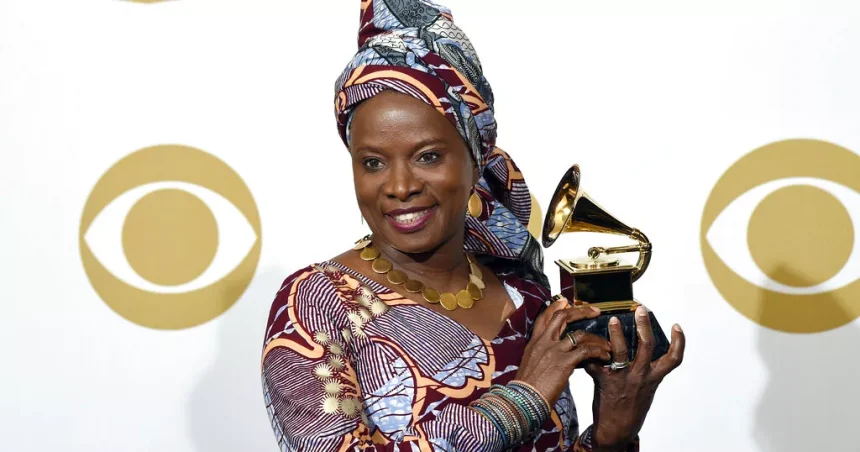The pulse of African music reverberates across the globe captivating audiences and earning a rightful place on the world’s most esteemed stages including the prestigious Grammy platform.
From electrifying performances electrifying the FIFA World Cup stages to the establishment of a groundbreaking Grammy category, African music is in the midst of an unprecedented evolution, surmounting longstanding obstacles with its infectious rhythms and diverse talents.
The inception of the new Grammy category “Best African Music Performance,” slated for presentation this Sunday, marks a monumental milestone, symbolizing a profound recognition of the continent’s rich musical heritage. This category celebrates recordings that intricately weave together distinctive local expressions from various corners of Africa, showcasing the unparalleled diversity and vibrancy of its musical tapestry.

Sub-Saharan Africa emerges as a dynamic epicenter for recorded music revenues, experiencing unprecedented growth in 2022, as highlighted by the International Federation of the Phonographic Industry’s Global Music Report 2023. This surge is propelled by emerging genres like Afrobeats and amapiano, which fuse elements of traditional West African styles and South African kwaito, igniting a global phenomenon.
Within this musical mosaic, the Grammy category casts a spotlight on an array of African genres, from the pulsating rhythms of Afrobeat to the infectious melodies of Afropop, from the soul-stirring sounds of soukous to the hypnotic beats of benga and bongo flava. Rooted in cultural traditions, these genres transcend geographical boundaries, captivating audiences on dance floors worldwide.

Streaming platforms serve as catalysts for the global dissemination of African music, with Afrobeats experiencing exponential growth on platforms like Spotify, showcasing a staggering increase of over 500% since 2017. Hit singles such as Rema’s “Calm Down” and Tyla’s “Water” epitomize the global resonance and impact of African artists, transcending cultural barriers with their infectious rhythms.
Renowned Nigerian producer LeriQ, instrumental in Burna Boy’s Grammy-winning album “Twice As Tall,” underscores the essence of the African sound, emphasizing its innate rhythm and emotional depth over technical intricacies. This distinct approach resonates deeply with Africa’s youthful and culturally vibrant population, projected to comprise a quarter of the world’s population by 2050.

Despite the strides made, challenges persist, including limited purchasing power and infrastructural constraints. Yet, with increased investment from major record labels and a steadfast commitment to nurturing local talent, the industry stands poised for further expansion and innovation.
African music transcends mere entertainment; it serves as a potent tool for social commentary and resistance against oppression. Songs emanating from the continent amplify voices against repressive regimes and societal injustices, serving as powerful agents of change and unity.
As the global spotlight intensifies, industry insiders like music executive Efe Omorogbe express boundless optimism about the future of African music. From the shores of Cape Town to the bustling streets of Cairo and beyond, African music resonates as a cultural force impossible to ignore, with the establishment of a dedicated Grammy category solidifying its indelible imprint on the global stage.








